Social Sciences > QUESTIONS & ANSWERS > WGU C368: Instructional Planning and Presentation Questions and Answers 100% Pass (All)
WGU C368: Instructional Planning and Presentation Questions and Answers 100% Pass
Document Content and Description Below
WGU C368: Instructional Planning and Presentation Questions and Answers 100% Pass Goals ✔✔goals are non-verbal and provide direction for educators, but they DO NOT SPECIFY achievement levels ... Instructional Objectives ✔✔Intended learning outcomes of the instruction Objectives ✔✔a statements of intended learning outcomes for the instruction Setting Objectives ✔✔1) narrow what the students should focus on 2) objectives should not be too specific 3) Students personalize teacher's goals Standards ✔✔Provide philosophy that guides curriculum implementation. Sets forth essential content to be taught grade by grade; Statements that describe the subject matter students should know/perform at each grade level Purpose of the Objectives ✔✔provide focus; provide guidelines; provide targets for instruction; convey intent; provide evaluation of instruction Instructional Strategies: Direct Instructional Approach ✔✔teachers tell students what concept or sill to be learned and then lead the student through most of the instructional activities Instructional Strategies: Inductive Instructional Approach ✔✔Involve some exploratory activity that helps lead students to discover a concept or generalization Instructional Strategies: Social Instructional Approach ✔✔Students work together in various ways to gather, process and learn information or skills. The teacher acts as facilitator Instructional Strategies: Independent Instruction Approach ✔✔Allows students to pursue content independently Deductive Strategies ✔✔Teacher starts with a known principle and guides students through learning concept by showing examples (direct approach) Inductive Strategies ✔✔Lessons begin with examples and students examine them to identify the concept of principle (indirect approach) Four Components of Direct Instruction ✔✔1) clear goals 2) Teacher-directed Instruction 3) Careful monitoring of student outcome 4) consistent use of classroom management Uses and Limitations for Direct Instruction ✔✔Uses: good for any subject, good for younger students or slow learners, Limitation: Not intended for social learners or high-order thinking Types of Teacher-Centered Instruction ✔✔Demonstration, Lecture, Modeling, Socratic Demonstration ✔✔Teacher exhibits or displays an experiment, process or skill to the class (type of Direct Instruction) Lecture ✔✔Teacher Directed lesson with teacher vocalizing for a majority of the class (Direct Instruction) Modeling ✔✔Teacher clearly describes the skill or concept in a multisensory manner Socratic ✔✔Teacher uses questions to draw out students' thinking/analysis Indirect Instruction ✔✔Also known as student-centered instruction Types of Student-Centered Instruction ✔✔Debate; Cooperative learning; differentiated instruction; discovery; discussion; Inquiry; panel; role play; simulation Debate ✔✔Students engage in a competitive discussion of a topic Cooperative Learning ✔✔Students work together to preform specific tasks in small mixed groups Differentiated Instruction ✔✔Students engage in different pathways to learning designed to meet student's individual needs Inquiry ✔✔Open ended way of seeking knowledge Panel ✔✔Informal group of 4 to 6 students with a chairperson discuss a topic while rest of class listens Role Play ✔✔Students act out roles or situations Simulations ✔✔students engage in mock events or conflicts. Students assume roles, make decisions and face consequences Games ✔✔involves student competition as the primary means to achieve a learning goal Concept Attainment ✔✔Student-centered model where student are given examples and nonexamples of a concept in the attempt to teach a specific idea or principle Grouping Strategies ✔✔groups are easy to differentiate instruction, can motivate students, may improve student achievement Base Groups ✔✔Long term, heterogeneous groups which work on tasks throughout the school year Informal Groups ✔✔short-term, often turn to your neighbor type group. Used to classify information, focus on objectives or bring about closure Formal Groups ✔✔carefully designed groups set for specific learning tasks Homogeneous Groups ✔✔group of students with same level of ability Heterogeneous Groups ✔✔group of students with differing levels of ability Group Pitfalls ✔✔Hetero/Homo grouping students can quickly understand who is in the gifted group and who isn't this can affect self-esteem, assessment is more difficult when using groups, classroom management is more difficult and groups size may allow for unmotivated students to hide Metacognition ✔✔thinking about your thinking, self analysis and understanding of one's own thought process How to Promote Metacognition ✔✔-teach student that the ability to learn can be improved -teach students how to set goals and make a plan to meet them -give students opportunities to self-monitor How to Activate prior knowledge ✔✔related to the students zone of proximal development (ZPD); students learn and retain more if they can relate the new information to something they already know. Common Steps to inquiry ✔✔1) identify problem 2) form hypothesis 3) collect data 4) analyze, test, interpret hypothesis 5) draw conclusions problem-based inquiry ✔✔students learn by doing, not by teacher teaching or being asked to read or memorize. Five components of Problem-based Inquiry ✔✔1) Students presented with a problem 2) Students describe what created the problem 3) Students identify solution 4) Students gather data and try solutions 5) Students analyze the data Problem Solving ✔✔involves the application of knowledge and skills to achieve certain goals project ✔✔an activity that involves investigation about the facts or a particular issue and the reporting of these facts in various ways Learning Centers ✔✔a designated place within the classroom where a student goes to pursue either a required or optional activity on a given subject Reciprocal Teaching ✔✔a technique in which one student leader of the class guides the rest of the class in summarizing the information (letting the students teach) Pre-Assessment ✔✔done by the teacher before instruction to determine students' knowledge, attitude and interests. This information is used as a STARTING POINT to make decision about instruction Formative Assessment ✔✔Occurs during instruction as a way to assess students' progress and assist the teacher in making decisions about further instruction Summative Assessment ✔✔Occurs after instruction and it serves as a means to document what students know, understand and can do. This assessment takes places AFTER instruction or AT THE END of a unit. Teacher Dispositions ✔✔essential teacher characteristics necessary values, commitments and professional ethics Reflection ✔✔thinking about educational matters that involves the ability to make rational decisions. Linear-Rational Approach ✔✔instructional planning involves sequential decisions about the (1) formulation of goals, (2) specification of objectives, (3) assessment of student needs relative to the stated goals and objectives, (4) selection of strategies and learning activities linked to the objectives, and (5) evaluation of student performance Recitations ✔✔involves a teacher asking students a series of short questions to determine if they remember or understand the previous material. Involve low-level questions and rarely engage student in thinking deeply about an issue Deductive Teaching Strategies ✔✔teacher starts with a known principle and moves to an unknown Divergent Questions ✔✔open-ended and tend to have many appropriate but different answers Convergent Questions ✔✔tend to have one best answer (who is the author of Moby Dick?) Focusing Questions ✔✔questions used to focus students attention on the day's lesson or the material being discussed Prompting Questions ✔✔questions that include hints or clues to aid students in answering the presented question Probing Questions ✔✔questioning same student in order to guide or gain clarification Practice ✔✔a strategy intended to consolidate, clarify and emphasize that the student has already learned Types of Homework ✔✔practice, preparation, extension, creative Closure ✔✔actions or statements that are designed to bring a lesson presentation to an appropriate conclusion Seatwork ✔✔involves students working on assignments during class that provides practice or review of previously presented material. Withitness ✔✔teacher's ability to look at all parts of the classroom at all times, notice who is misbehaving and respond to the misbehavior in an appropriate and prompt manner Overlapping ✔✔refers to a teacher supervising or handling more than one group or activity at a time Comprehensive Input ✔✔information that is understandable to students (part of the SIOP model) Emotional objectivity ✔✔the ability of the teacher to interact with students in a businesslike, matter-of-fact manner even though s/he might be experiencing strong emotions. Dominance ✔✔characterized by clarity of purpose and strong guidance in both academic and behavioral aspects of the classroom. Cooperation ✔✔Teachers who provide flexible learning goals, take a personal interest in students, use equitable and positive classroom behaviors, and respond appropriately to students' incorrect responses [Show More]
Last updated: 2 years ago
Preview 1 out of 12 pages
.png)
Buy this document to get the full access instantly
Instant Download Access after purchase
Buy NowInstant download
We Accept:

Also available in bundle (1)
.png)
WGU C368 Bundled Exams with Complete Solutions
WGU C368 Bundled Exams with Complete Solutions
By Nutmegs 2 years ago
$16
6
Reviews( 0 )
$10.00
Can't find what you want? Try our AI powered Search
Document information
Connected school, study & course
About the document
Uploaded On
Jan 19, 2023
Number of pages
12
Written in
Additional information
This document has been written for:
Uploaded
Jan 19, 2023
Downloads
0
Views
110

.png)

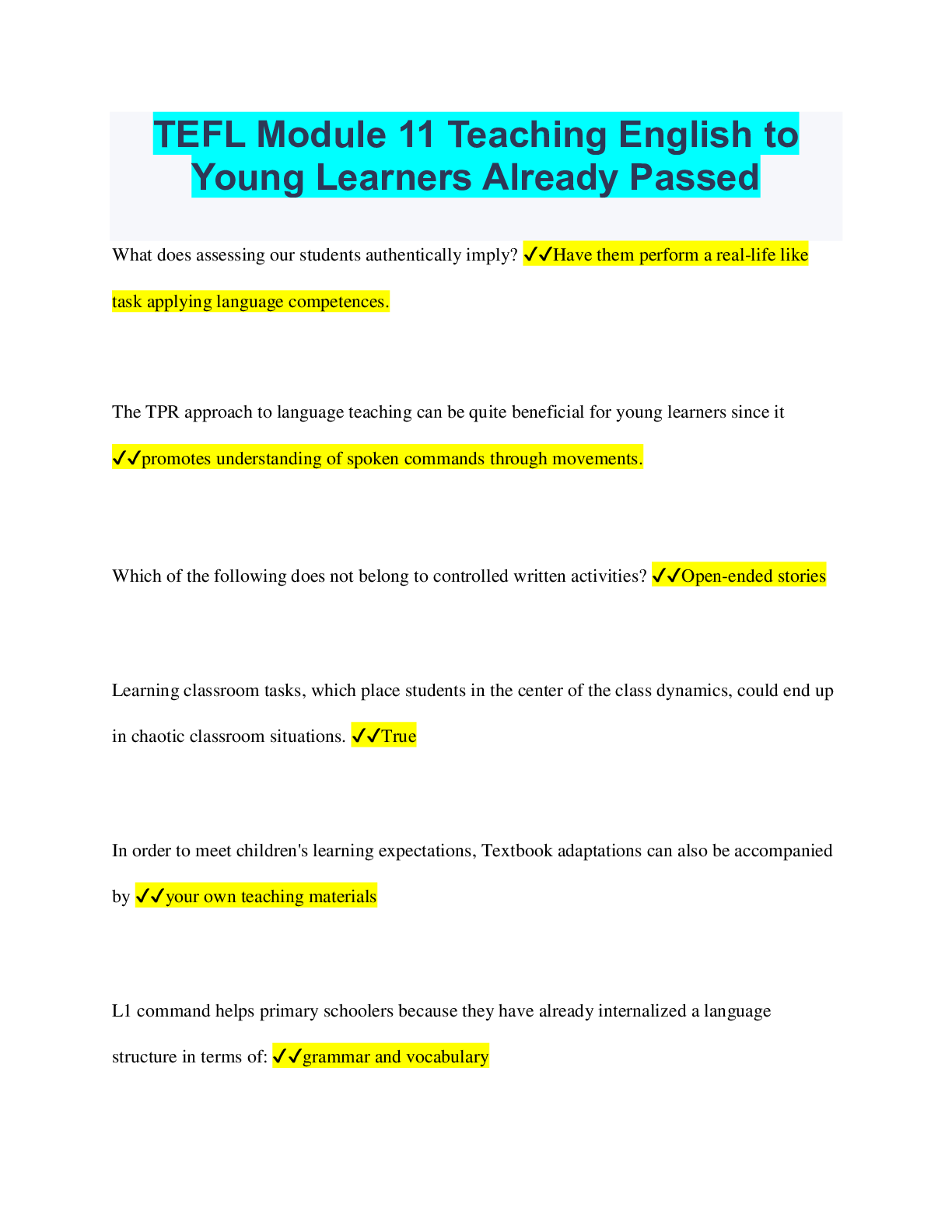
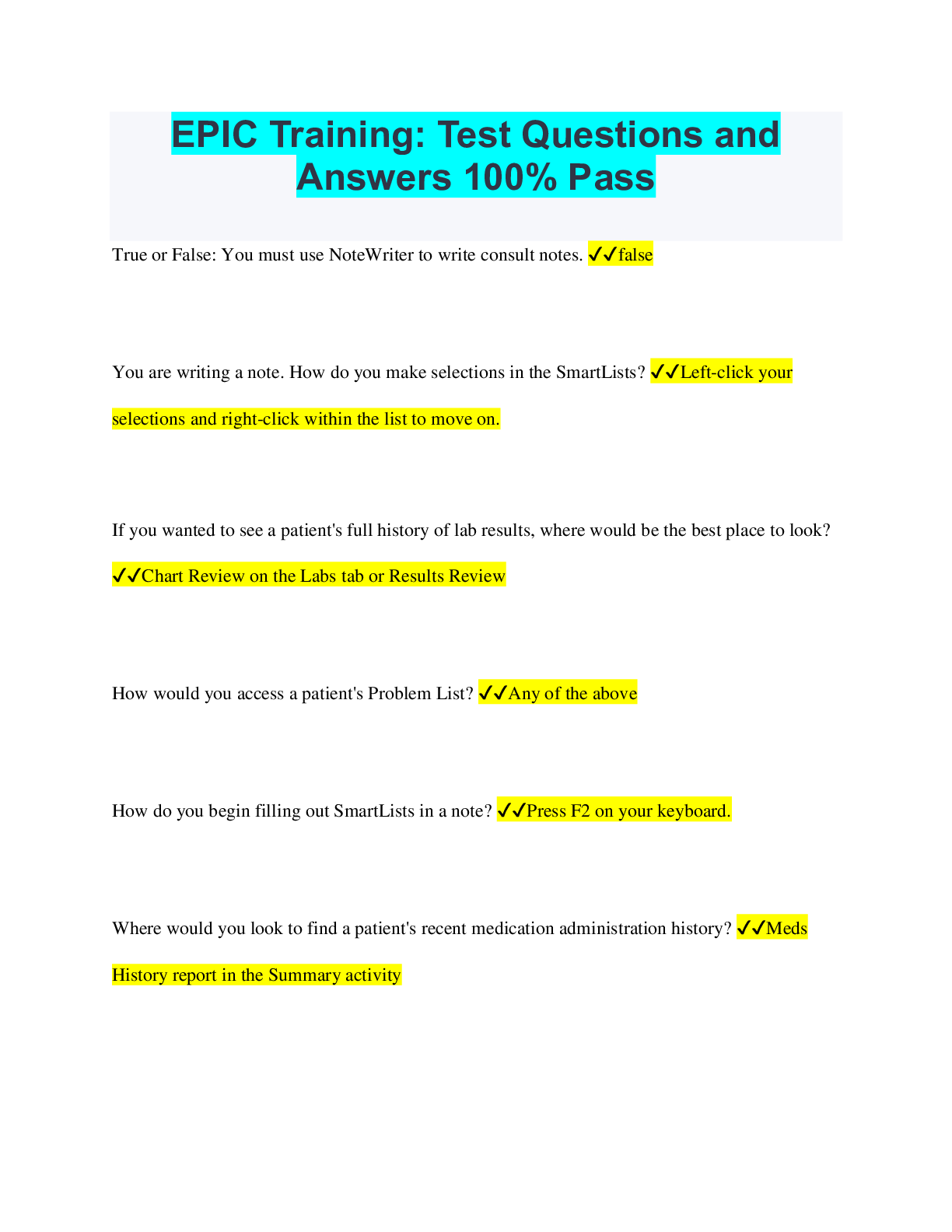
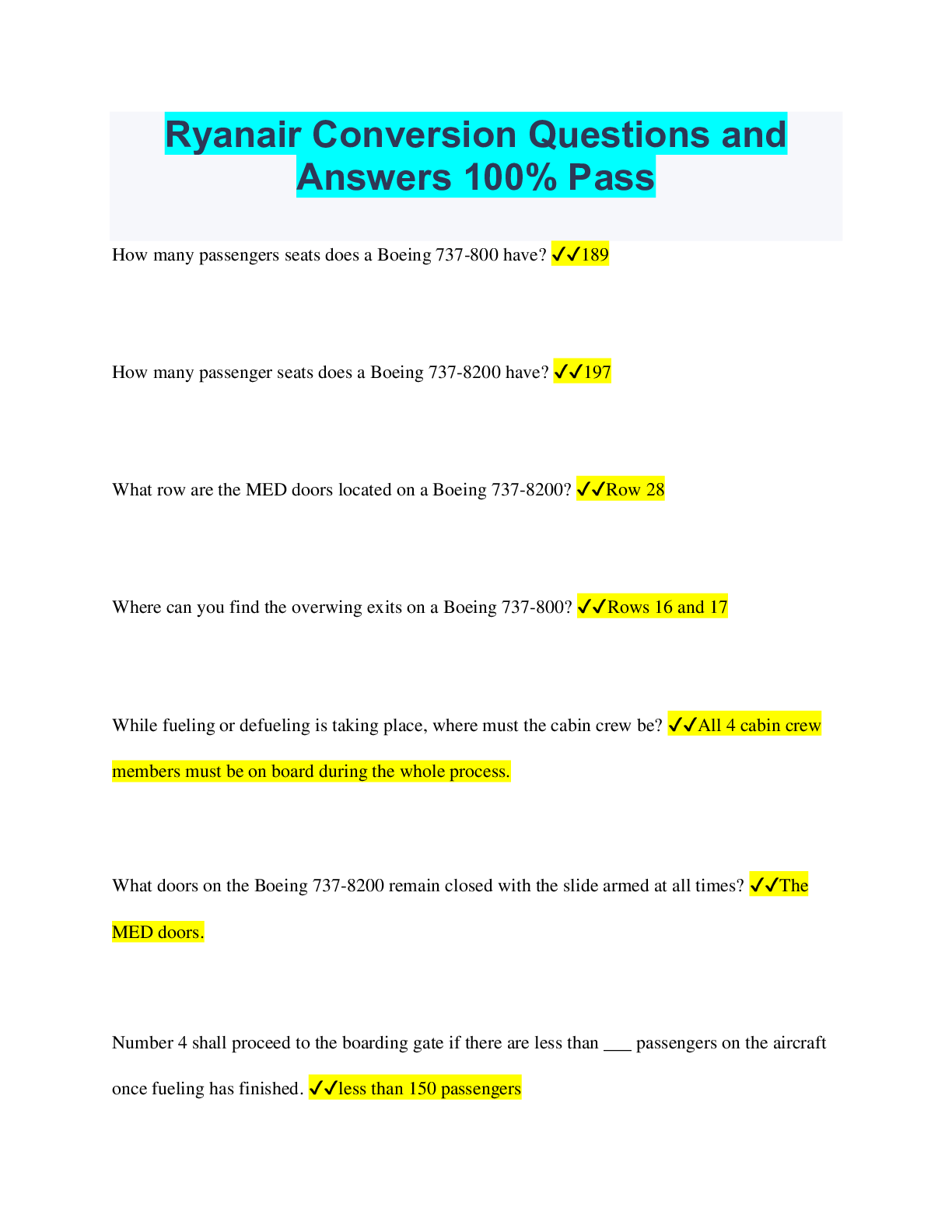
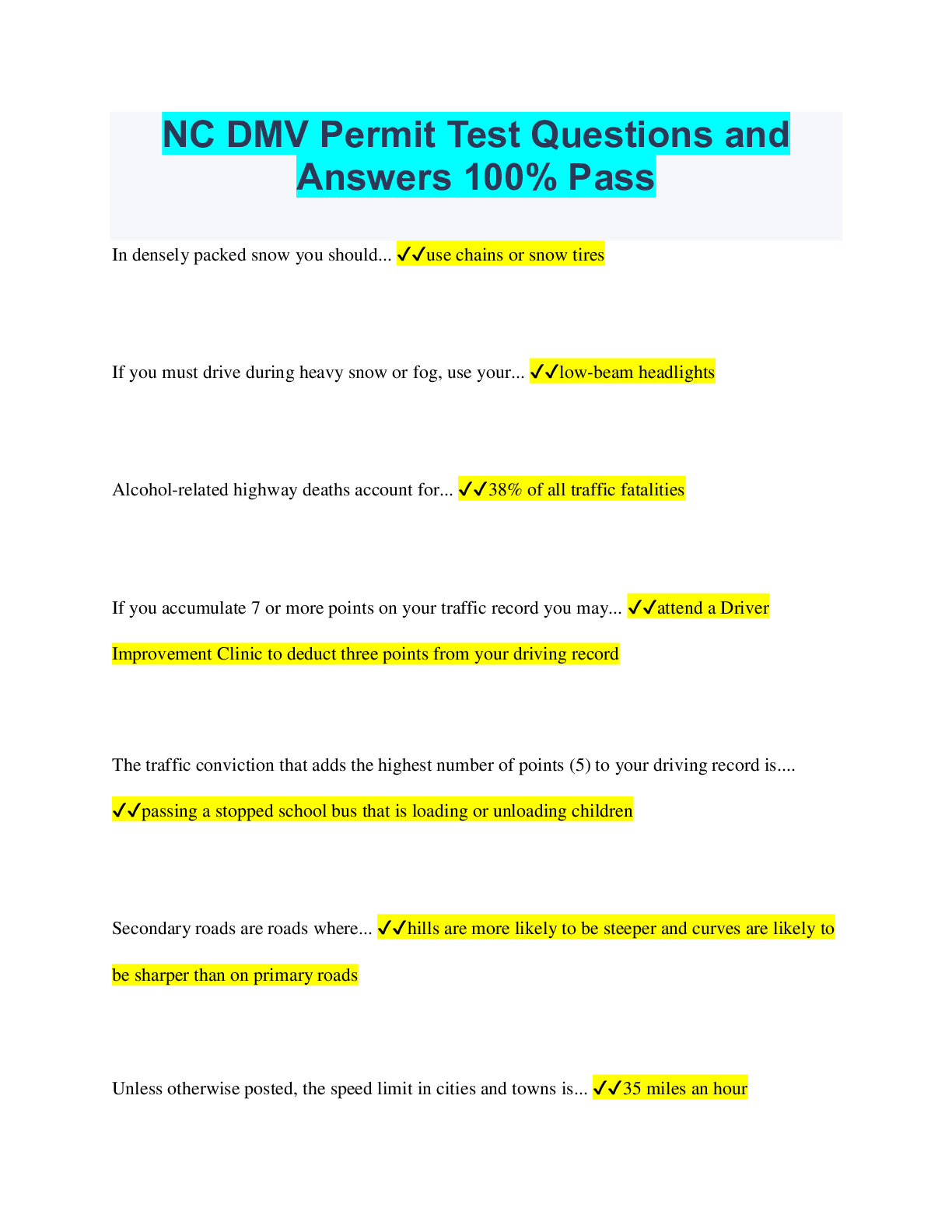
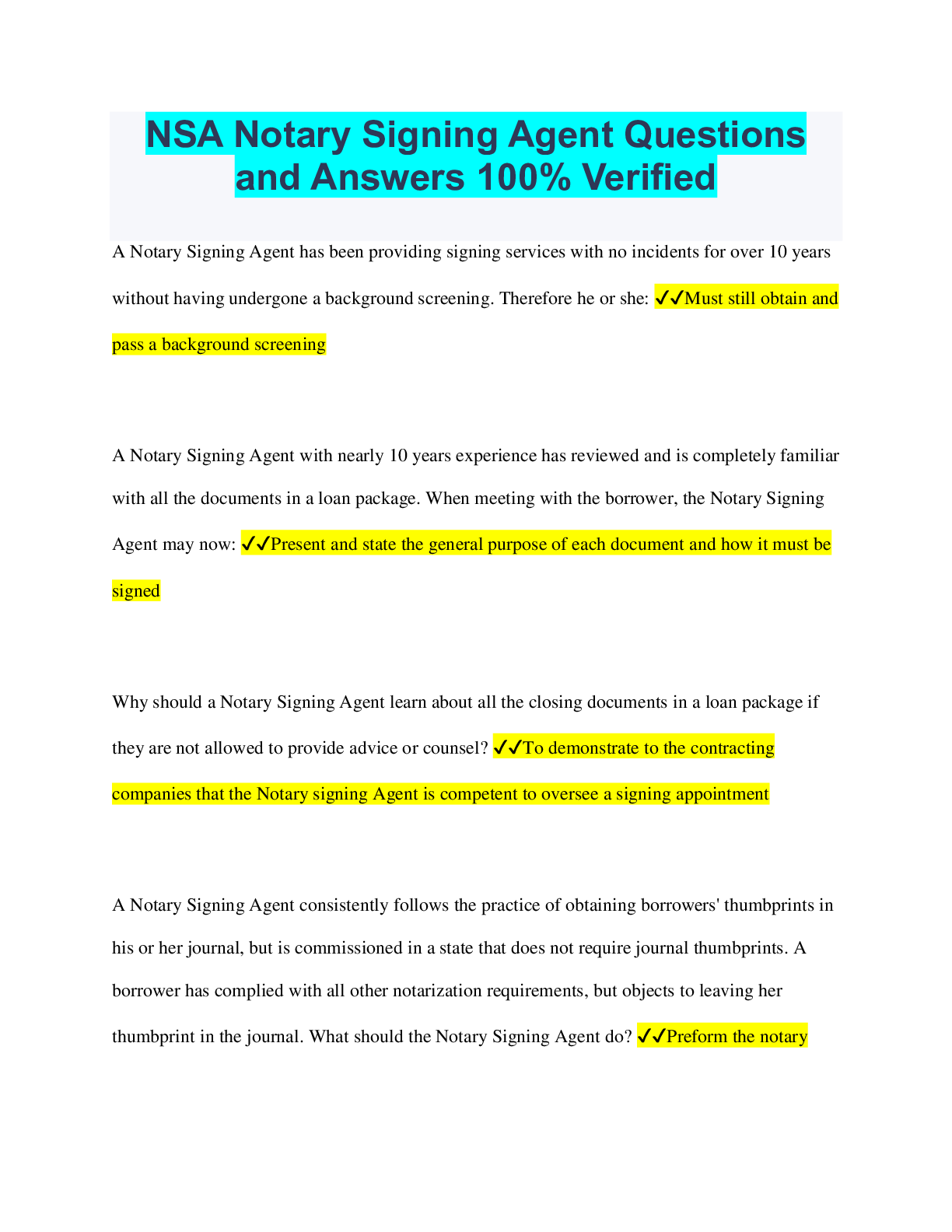
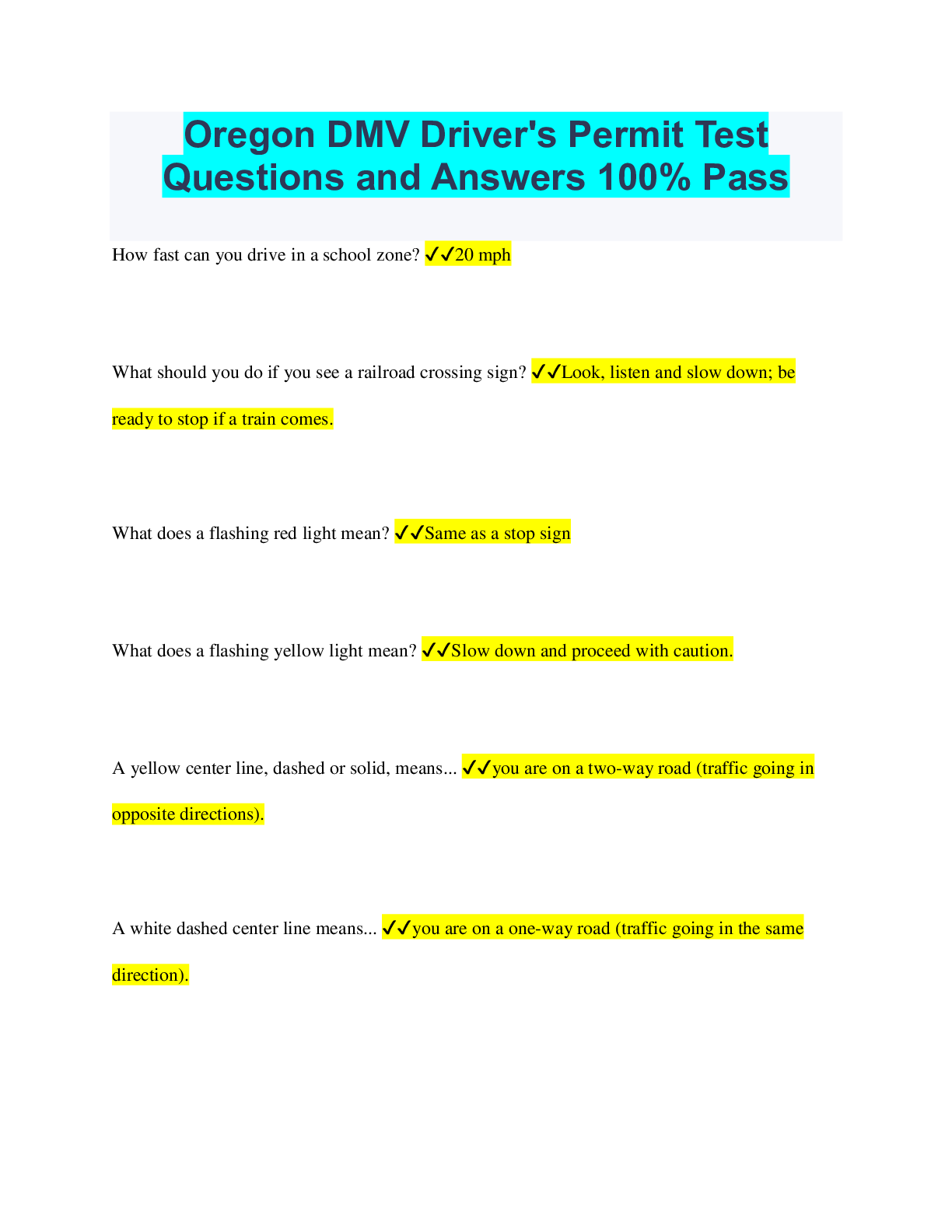
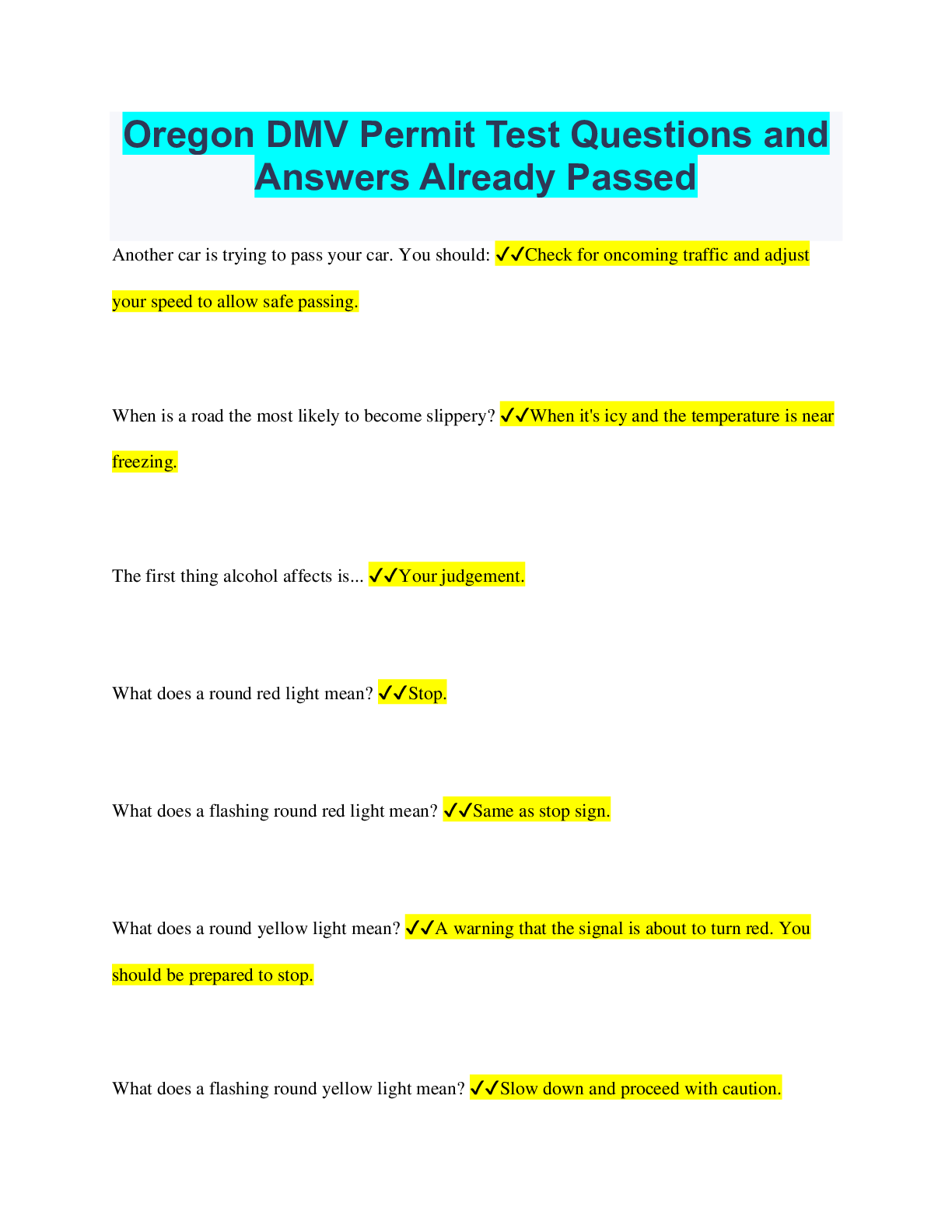
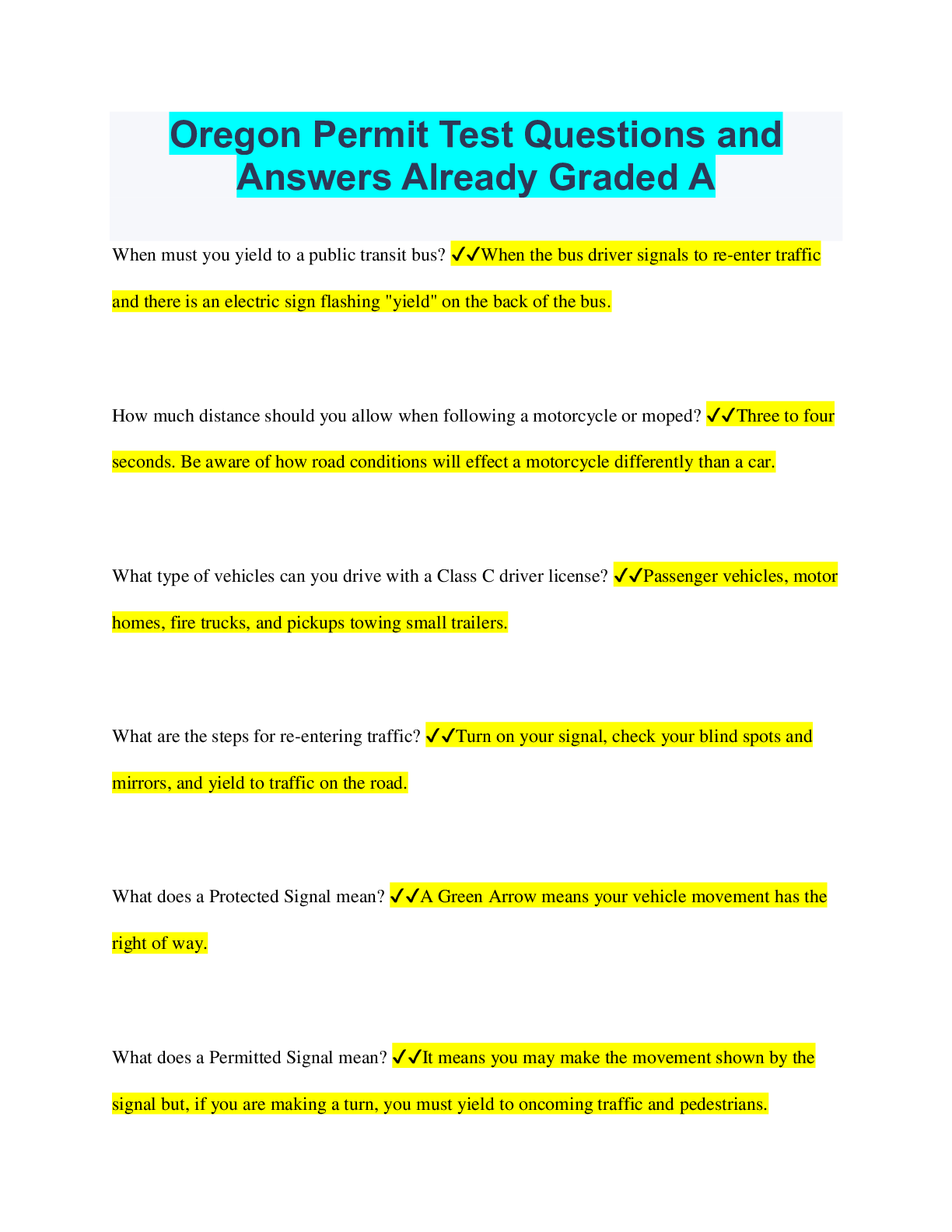
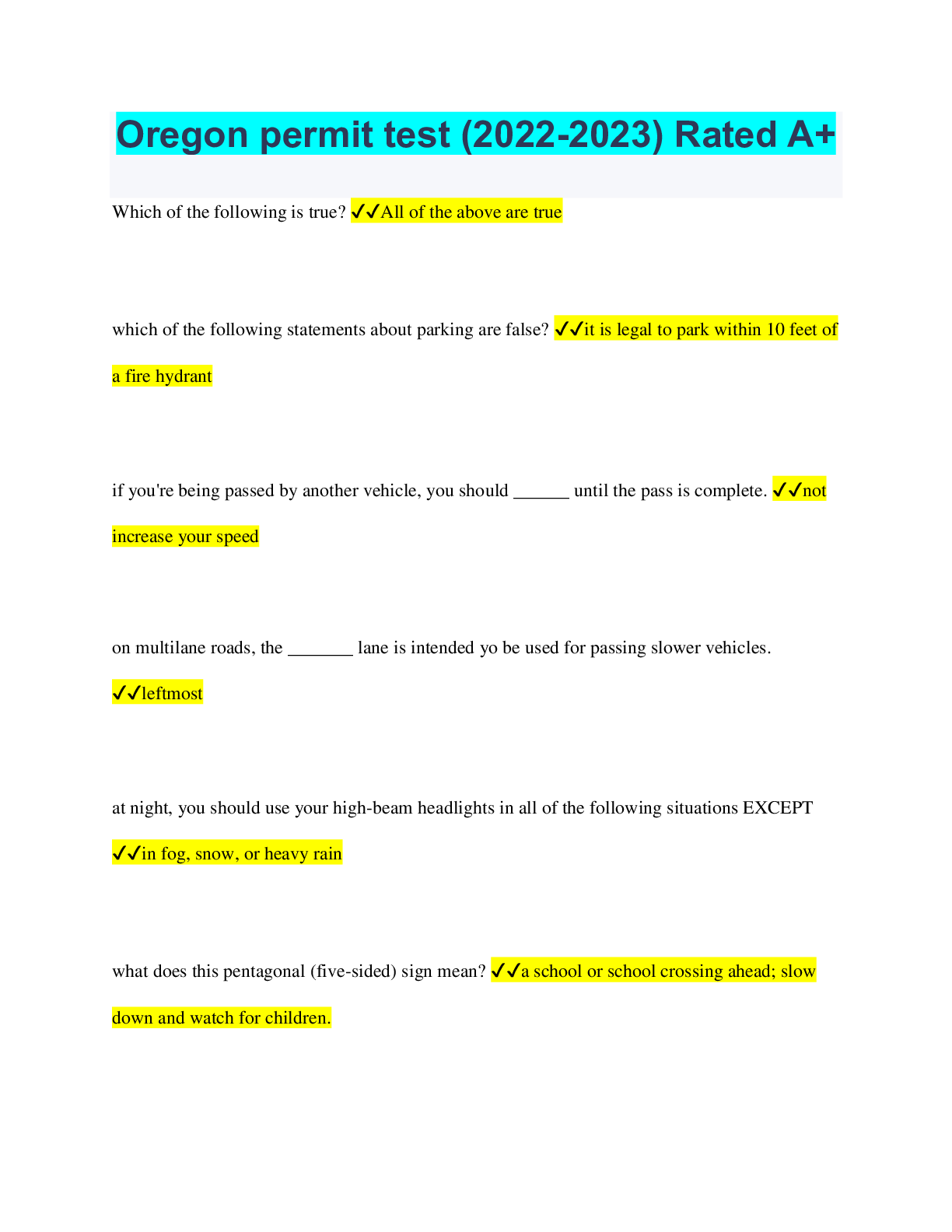
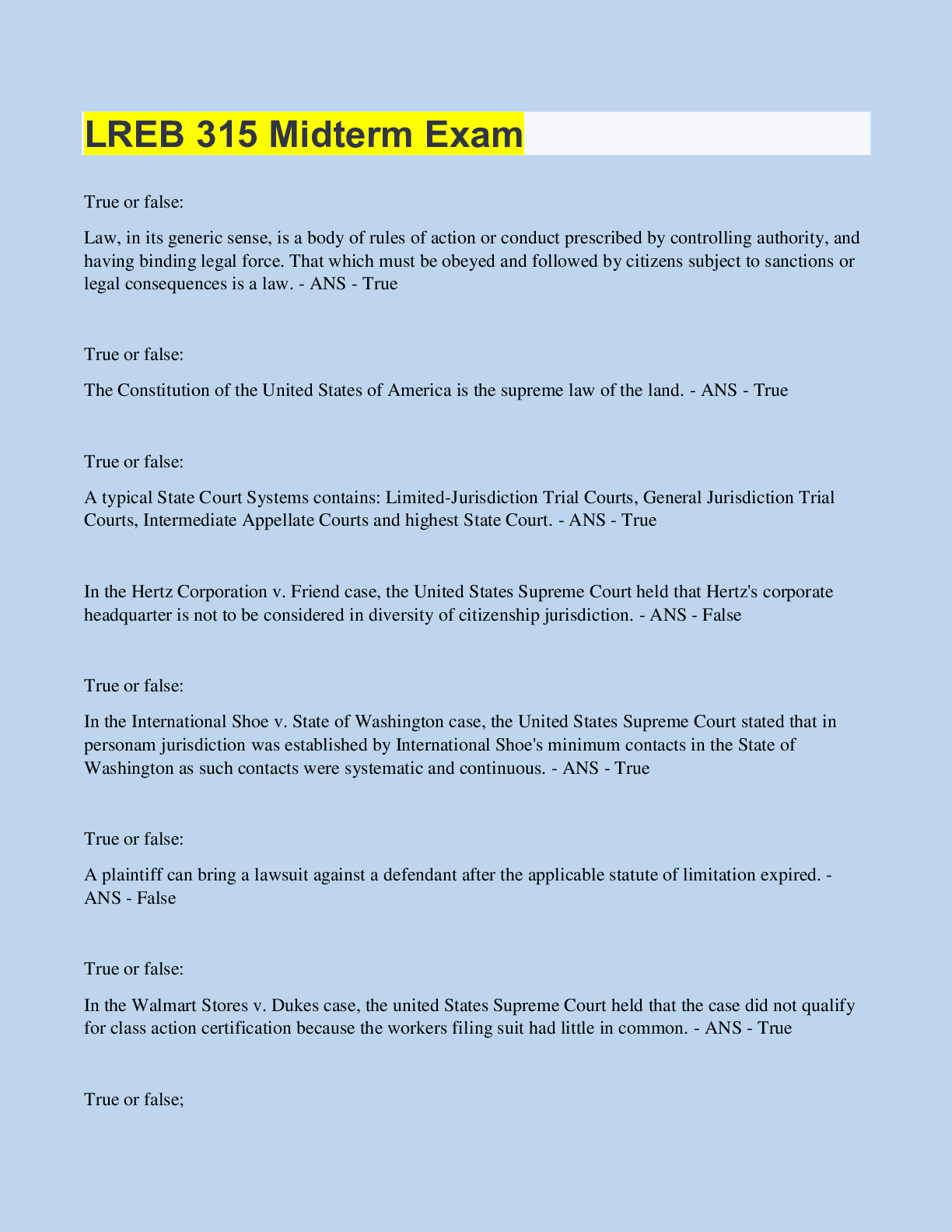
.png)
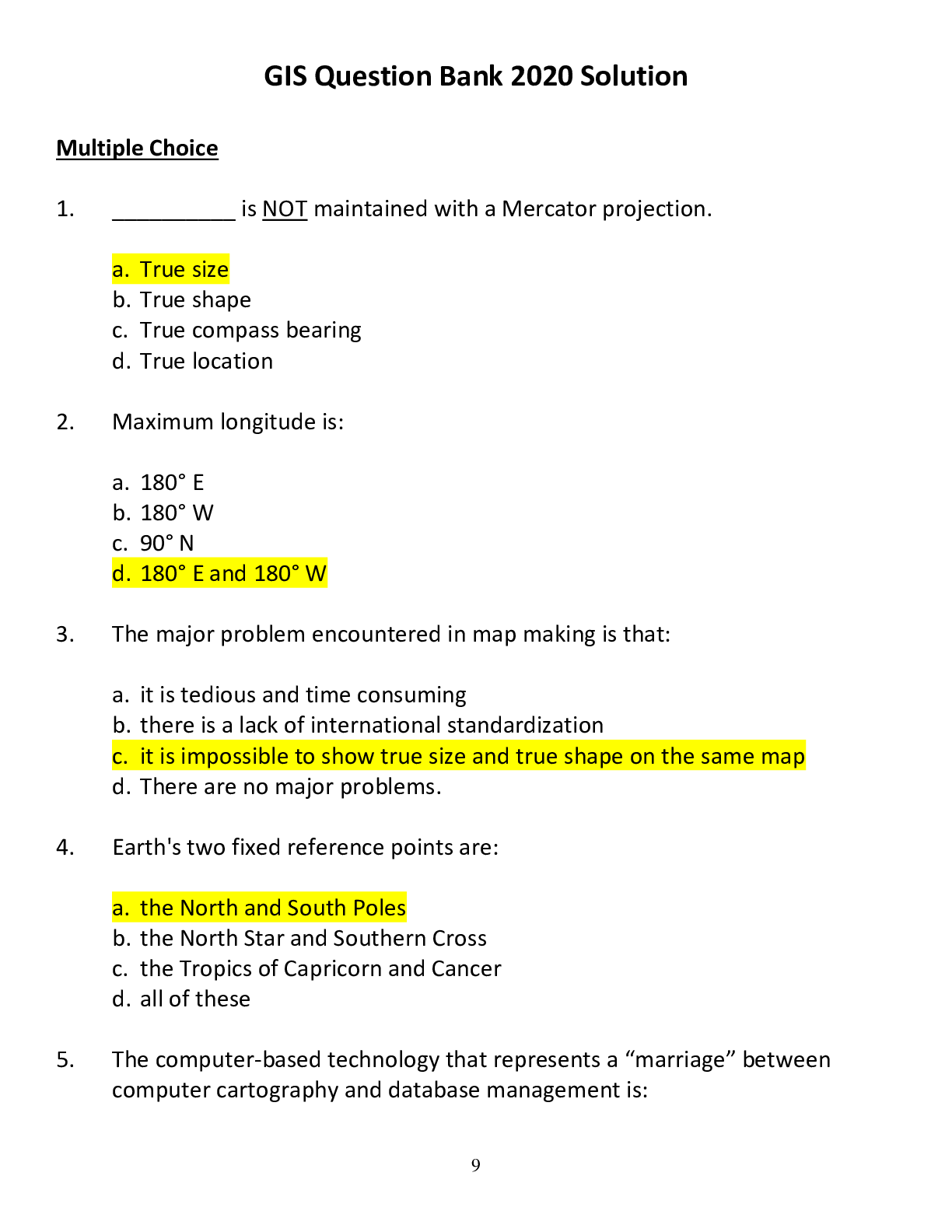


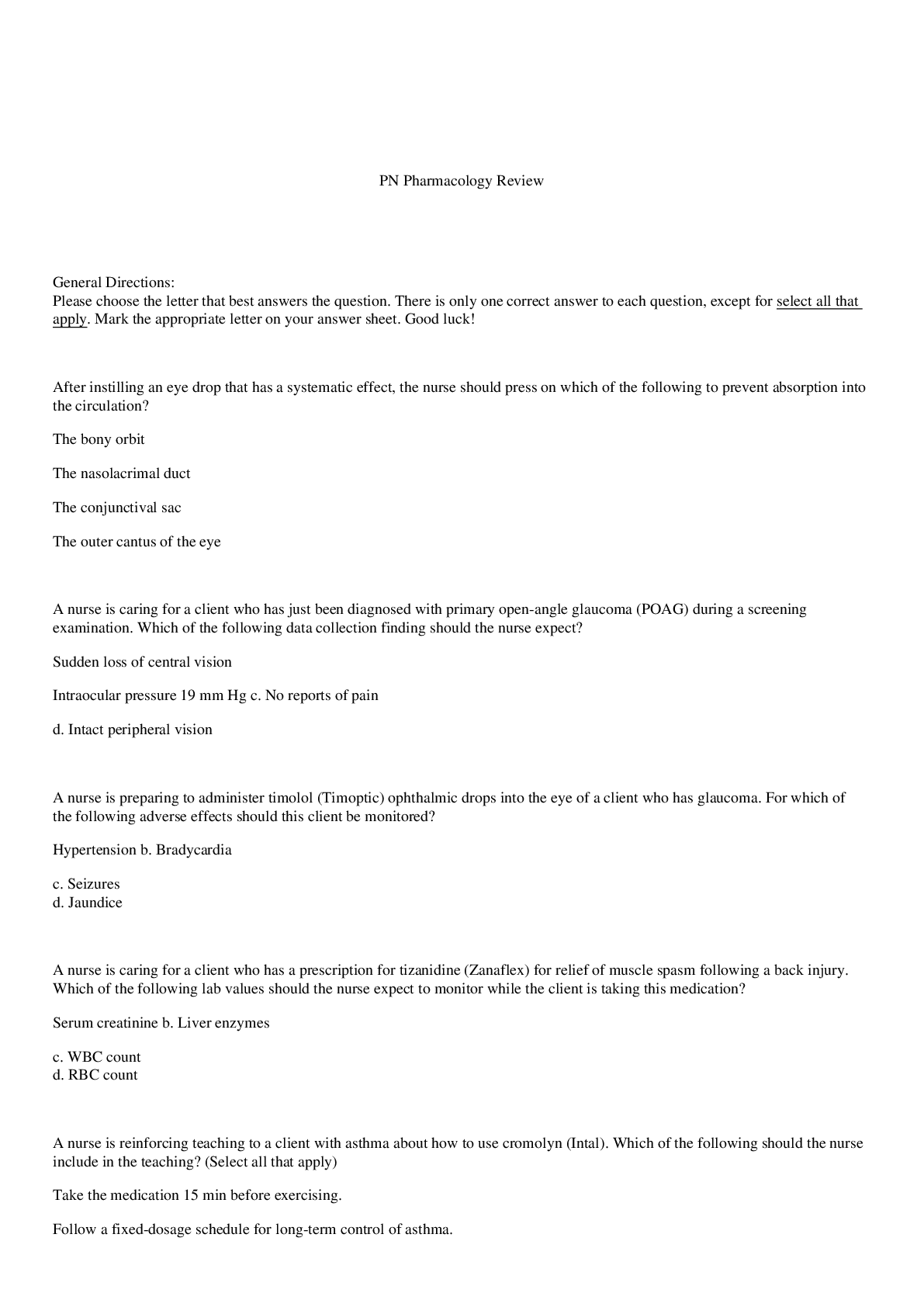




.png)
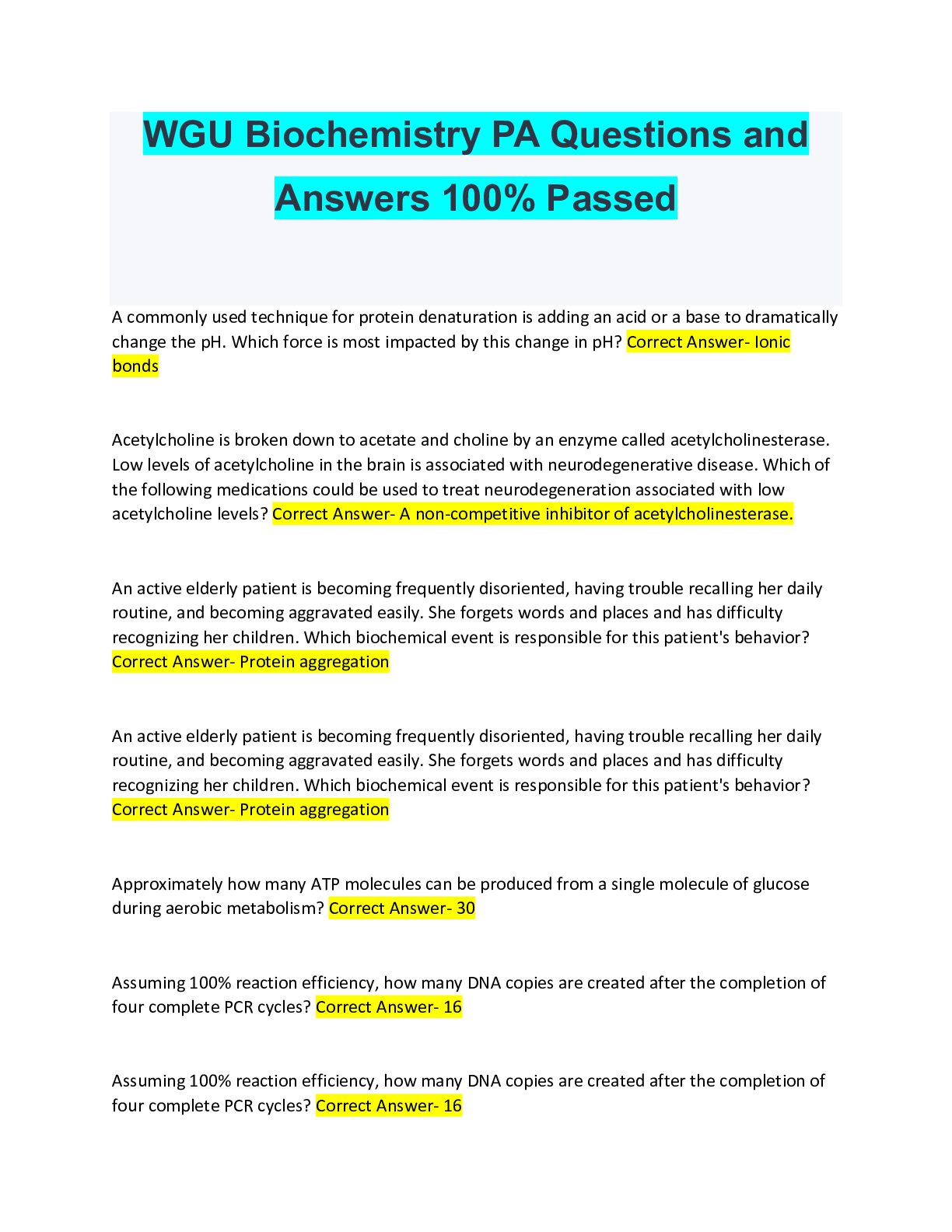
.png)

